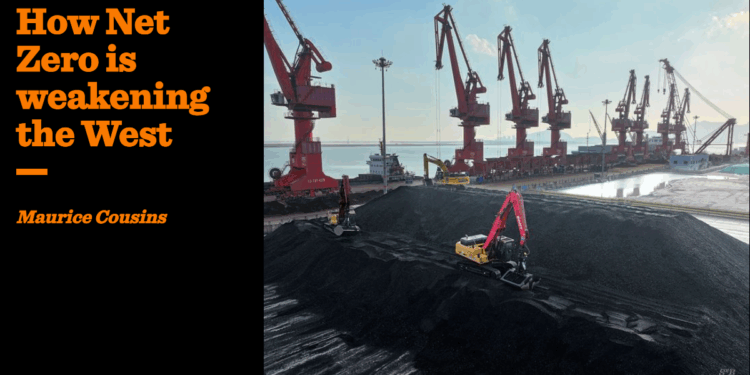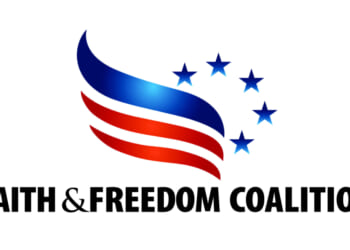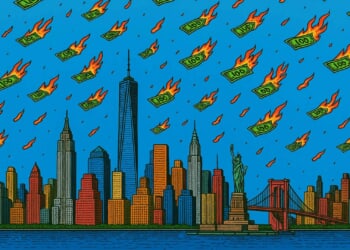This week, President Xi Jinping promised a 7–10 per cent cut in China’s emissions by 2035. Within hours, Western media and elites were hailing it as a moment of global progress. Reuters insisted that “China leads nations with new climate plans, defying US climate denial.” The Washington Post said Beijing was “asserting green energy leadership.” Professor Myles Allen, head of Atmospheric, Oceanic & Planetary Physics at Oxford University, welcomed the news on the Today programme, arguing that because China is the world’s largest emitter it would “make a difference,” and dismissing sceptics on the grounds that the Chinese “typically do better than their promises.”
At first glance, this looks like the long-awaited moment when the world’s largest polluter finally accepts its share of responsibility. Yet peel back the CCP rhetoric and the story collapses. As Dr Simon Evans of Carbon Brief, the climate news outlet, acknowledged, Xi’s announcement was significantly less ambitious than what experts recommended for it be in line with the goals of the Paris Agreement.
But China knows exactly what it is doing. This is old wine in new bottles. The Soviet Union long ago mastered this kind of cynical information warfare. Moscow understood that the West could be weakened, not only by sowing internal division, but by its own ideals. It excelled in a form of moral arbitrage: the exploitation of Western virtues that sat uneasily with the West’s strategic interests.
As Christopher Andrew, the leading historian of intelligence, records, the KGB poured resources into “active measures” that harnessed Western ideals — peace, racial justice, environmentalism — to undermine NATO unity. The genius of this strategy was that Moscow did not have to invent causes, only to amplify them.
To be clear, these were not illegitimate causes. All were noble in themselves. But from the 1930s onwards, Soviet propagandists learned how to manipulate the “innocent” moral reflexes most deeply rooted in the West — our Christian ethic of compassion and an Aristotelian desire for virtue — and to twist them into vulnerabilities.
For China, climate change is today’s “peace.” By dressing up a modest pledge in the language of responsibility, Beijing flatters the West’s deepest moral instincts. Our elites are only too happy to applaud, even as China expands coal, monopolises critical minerals, uses slave labour, and deepens its industrial dominance. Meanwhile, we have the highest industrial energy prices in the developed world and emit less than 1 per cent of global emissions.
Margaret Thatcher saw this danger very clearly. In Statecraft, written a decade after the Cold War, she warned that Western democracies were prone to “a recurring mixture of naïve idealism with a distaste for power.” Seduced by the “end of history” mindset, elites thought only of “the arts of peace.” Human rights and welfare crowded out security, defence was cut, and vigilance ebbed. Her warning was blunt: principles must be “accompanied by steel along with good intentions,” or liberty itself would wither. “And, yes, all this does matter now,” she wrote. Forgetting what we faced in the Cold War, she argued, meant we would be “incapable of securing, let alone enlarging, the gains that liberty has made.”
That is precisely where we find ourselves today. In mistaking symbolic global carbon targets for strategy, Britain’s political class has confused moral aspiration with statecraft. Labour and Conservative politicians alike have congratulated themselves on “climate leadership” while presiding over industrial decline, fragile energy systems, and a nation exposed to every external shock.
It is not the first time Britain has made this mistake.
In the 1930s, as the historian Paul Kennedy notes in The Rise and Fall of the Great Powers, Britain was “badly scarred” by the industrial horrors of the First World War and disillusioned by the “Carthaginian peace” that followed. The public instinct was to shun militarism, cut defence, and prioritise social reform. Baldwin and Chamberlain reminded their cabinets that “there were no votes in rearming” or interfering in European affairs. Against this backdrop, the policy of “appeasement” was therefore not regarded as cowardice, as it is today, but as the only moral and responsible course.
This, more than anything, is what gave appeasement its political force: it was not just expedient but popular and moral. Peace was seen as the highest moral good, just as Net Zero is treated today as the only responsible response to an existential threat. In both cases, governments were trapped between strategic necessity — rearmament then, energy affordability and security versus decarbonisation now — and publics demanding moral absolutes over hard choices.
But the parallels go much further. As Kennedy records, “critics of the appeasement policy such as Churchill were systematically censored and neutralised.” To oppose appeasement was to be branded a warmonger; to question the UK’s Net Zero policy is to be cast as a crank or denier. In both eras, dissent was suppressed even when it voiced grand strategic truths the elite consensus refused to face.
If we care about these values, we must be brutally honest about what sustains them
The challenges we face today are no less grave than those of the 1930s. This is not alarmism. Great power competition is back. Russia is on the march in Europe. China is openly seeking to overturn the American-led world order. The West’s ability to shape the world is ebbing away. As we have seen in Ukraine, we are entering a world where might, not right, decides outcomes. Human rights, free trade, the rule of law — all the principles we took for granted in the post-Cold War era — are under assault.
If we care about these values, we must be brutally honest about what sustains them. They do not rest on abstract theories of justice or universalism, but on the hard realities of Western power: our industrial base, our energy systems, and the military capabilities that flow from them. This is what allows free nations to defend themselves and uphold an open world order. That material foundation is rapidly crumbling. Net Zero, layered on top of decades of complacent energy policy, is accelerating the erosion of our productive force at the very moment when rivals are expanding theirs.
Countries like China, Russia, North Korea and Iran understand this truth all too well. Until Britain and the wider West relearn the lessons of the Cold War — that statecraft demands steel as well as good intentions — we will go on being outmanoeuvred by competitors who exploit our ideals more effectively than we embody them ourselves.












